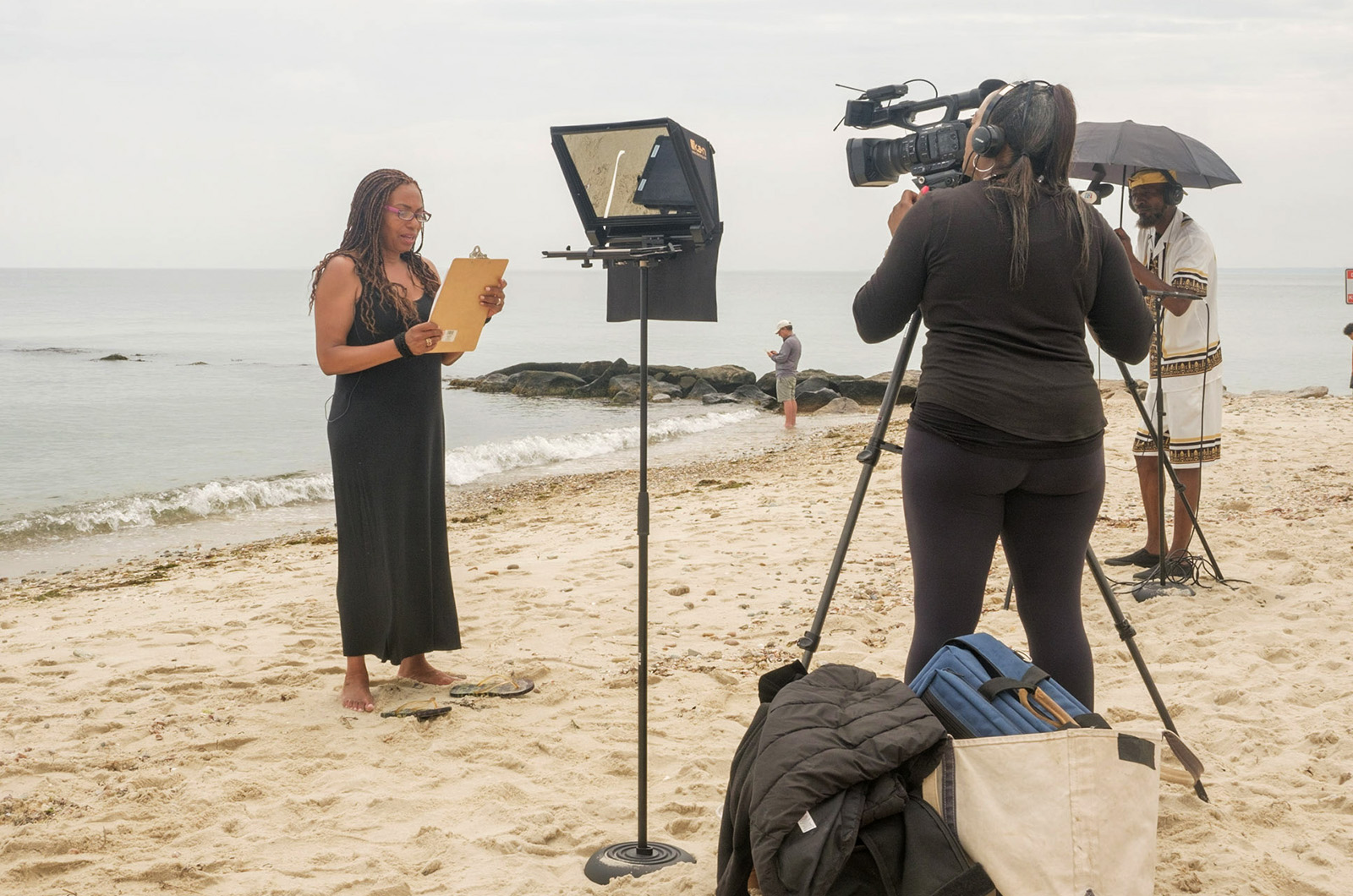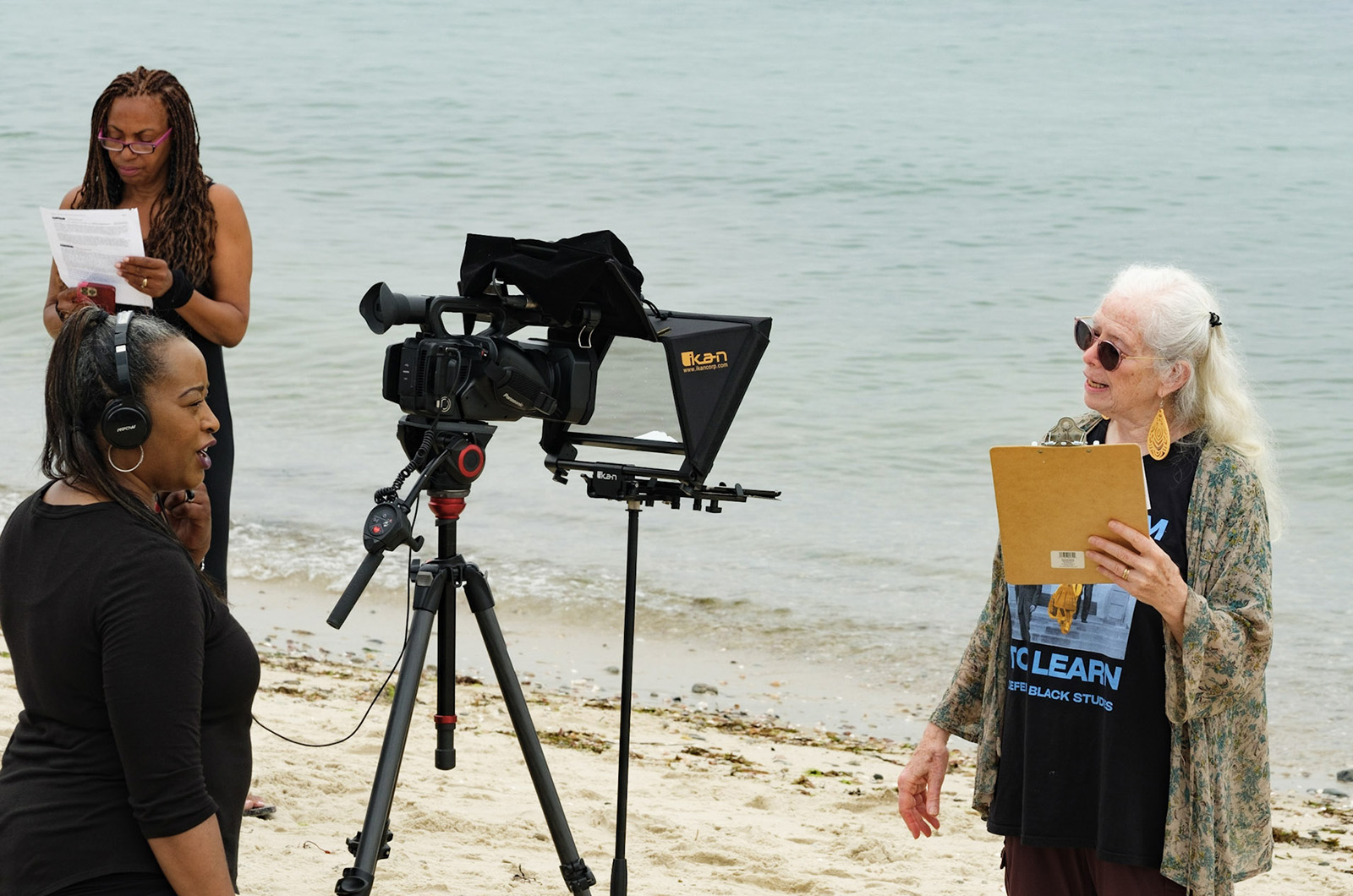Twenty five years ago, a group of people gathered in Oak Bluffs for a Fourth of July picnic. When heavy rain sent them inside, they decided to pass the time reading Frederick Douglass’s speech, What to the Slave is the Fourth of July?
Among the group that day was Abigail McGrath, author, playwright, filmmaker and founder of Renaissance House, an artist retreat in East Chop whose mission is to continue the legacy of Dorothy West and other Harlem Renaissance writers.
Having felt the resonant power of Mr. Douglass’s speech, Ms. McGrath spearheaded a revival reading the following year, and every year since. The event has been held in Oak Bluffs since its inception, and moved to Inkwell Beach a few years into the tradition.
More than 40 volunteers took turns Tuesday morning, reciting sections of the over 10,000 word address that Mr. Douglass first delivered to the Rochester Sewing and Anti-Slavery Society on July 5, 1852. Mr. Douglass’s speech reproached the notion of United States independence as it excluded still-enslaved African Americans 76 years into American independence.

“This is a different way of thinking about the Fourth of July,” Ms. McGrath said. “And the truth is, what do we care about the Fourth of July? We were told we were going to be free after supporting that war, and we, of course, weren’t.”
Documentary filmmaker Stanley Nelson Jr., whose work focuses on African American history and experiences, attends the event every year to recognize the holiday. In 2021, he made a film for PBS called Becoming Frederick Douglass. He explained that, as Mr. Douglass said 170 years ago, the Fourth of July does not mark independence for many African Americans today.
“This is a great way to commemorate the Fourth in a different way, other than raising the flag,” Mr. Nelson said. “This is what the Fourth means to us African Americans.”
Makani Themba, a writer and social justice advocate, is the event’s director, editor and producer. She explained that reciting the speech acts as a reminder of a part of history lost to typical Fourth of July celebrations.
“There is an American story that this day was a day of freedom, and everybody was free,” Ms. Themba said. “And it tends to erase another really important, significant fact, and that is slavery. That is racism — institutional and otherwise — in this country. So this is a way for us to acknowledge the whole history of the United States.”
Longtime event participant, Kahina Van Dyke, explained that hosting the event in Oak Bluffs is particularly meaningful, as it is the historic seat of the Island’s African American population.
“It is so important to celebrate how significant this town has been in the history of independence and the history of African Americans,” Ms. Van Dyke said. “It also reminds us how connected we are to the past. The words in the speech still apply today.”
Jessica B. Harris, professor, historian and cookbook author, said that the event’s location is an urgent reminder of the Island’s not so distant past.
“I have been on the Island long enough to remember being put off the beach in Edgartown,” she said. “This history is my stuff. And this is my beach where I was sent back to.”
Inkwell Beach was named pejoratively for the Island’s African American population who used it, Ms. Harris said. However, the Oak Bluffs community reclaimed the name, she said, in recognition of the historical significance of African Americans on the Island.
Gail Tipton, who has been reading at the event since its first meeting, returns each year because she believes the inequalities Mr. Douglass wrote about are still true.
“Most people don’t really realize the contradictions between the Declaration of Independence and the reality that’s going on in our society,” Ms. Tipton said. “His speech spells those out very clearly, and those are still going on today, which is a horror. The more we can be together and listen and do and repair and heal, the better off we will be in this country.”








Comments (2)
Comments
Comment policy »